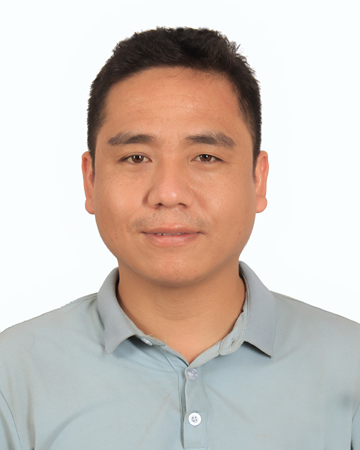Columns
Prioritising teachers’ training
While preparing the teaching force has been a global concern, Nepal has given it the least priority.
Babu Lama
Whenever discourse surrounding Nepal’s education reform comes to the fore, teacher development is often overlooked. While their professional development is quite mature in countries like the Philippines, Sweden, and Norway, among others, it is still in its infancy in Nepal.
The planning and implementation of a teacher’s professional development play an instrumental role in shaping the quality of their teaching. After the restoration of democracy in 1990, the Ministry of Education aimed to ensure a consolidated provision on policy formulation and implementation of teacher training activities as per the recommendation by the National Education Commission in 1992. As a result, the Secondary Education Development Centre, the Distance Education Centre, Primary Teacher Training Centres and the National Centre for Educational Development (NCED) have played active roles in educating school-level teachers.
In addition to the development opportunities for teachers that non-governmental organisations such as the British Council and the Regional English Language Office (US Embassy) offer, the education ministry and local governments provide continuing professional development training for school teachers focusing on curriculum, lesson planning, evaluation framework, etc. Universities lead secondary-level pre-service teacher training programmes, and the NCED conducts primary and secondary-level in-service training. It also runs primary-level pre-service teacher training programmes through its primary teacher training centres. However, despite these efforts, the impact hasn’t been satisfactory.
Issues with teachers’ training
Over the years, NEB results have been hovering around 50 percent or less. Last year, only 50.9 percent of the students passed the national examinations in grade twelve. Of the many reasons behind such a high share of failure, poor teacher professional development programmes take precedence. The irony is that according to the National Assessment of Students’ Achievement reports, 90 percent of community-managed school teachers have undergone professional development programmes.
Numerous reasons are behind the failure of teachers’ training programmes. First, there is a poor alignment between these programmes and the national-level examinations conducted by the national boards. For instance, teachers’ training courses in Nepal, whether pre-service or in-service, promote the so-called learner-centred and participatory pedagogic approaches. However, this has no relevance to the national-level examinations that measure how much content the learners have mugged up.
Second, too much training has disrupted the regular classes. Most teachers tend to seek training opportunities to escape their work. Third, though the overall training programmes seem satisfactory, there’s a problem with skills transfer as, in many cases, the skills don’t reach the classroom. Finally, most of Nepal’s in-service teachers’ training is supply-driven rather than demand-driven. These programmes are conducted based on the perceptions of the trainers without understanding the teachers’ requirements. Also, the pre-service training that universities conduct is limited to the training centres. Since there isn’t any provision for establishing contact with teachers after the training, the universities are unaware of their performance in the classroom once they graduate.
Many experienced teachers view professional development initiatives as futile, assuming they are already competent. However, in reality, professional teachers are always willing to learn and improve their classroom practice, regardless of their age or experience.
The concept of teachers’ professional development has shifted over time. It isn’t just “an activity to brush up on the teachers’ pedagogic skills” or “learning how children learn”, as defined by Beatrice Avalos, an educational researcher. At present, it involves conducting action research, actively engaging with a community of professionals or teachers’ associations, participating in training, workshops and conferences to get insights on the latest trends in education, sharing ideas and discussing them through blogs and articles, journals and reflections for publication. These activities are imperative for strengthening ideas and supporting teachers’ professional development.
Way forward
Teachers lay the foundation for all other professions. While preparing the teaching force has been a principal concern globally, Nepal has given it the least priority. This is evident in the way the teacher’s development programmes have been launched and how much the government has been investing in their functioning. For the fiscal year 2023-24, Nepal has allocated 11.27 percent of the total budget to the education sector. Percent-wise, this is not much less than that of the Philippines, which has allocated 16 percent of its national budget to education. However, the education budget in the Philippines is 12 times higher than that of Nepal. Therefore, the Government of Nepal must first increase its education budget to improve the overall education outcome.
Similarly, after being hired, teachers at community-managed schools hardly make an effort for their professional and personal advancement. These teachers should be growth-oriented by changing their perceptions and leaving their comfort zones. They must stop being complacent about their experience, reject themselves as professionally developed, and instead embrace developing professionally. For this, they must engage in the community of practice.
Policymakers should reform the student assessment system as per the objectives of professional development programmes, integrate the experiences of the teachers from the grassroots level, practice follow-up and monitoring activities to ensure the training skills reach the classrooms and discourage politicisation in education. They should also revamp the theoretical training models to the practical, and engage teachers in discussions for solving problems surrounding the education sector. Finally, the government must prioritise the pressing need for effective teacher professional development programmes.




 9.89°C Kathmandu
9.89°C Kathmandu















